Token2049: A Wet Start to a Bright Future in Blockchain
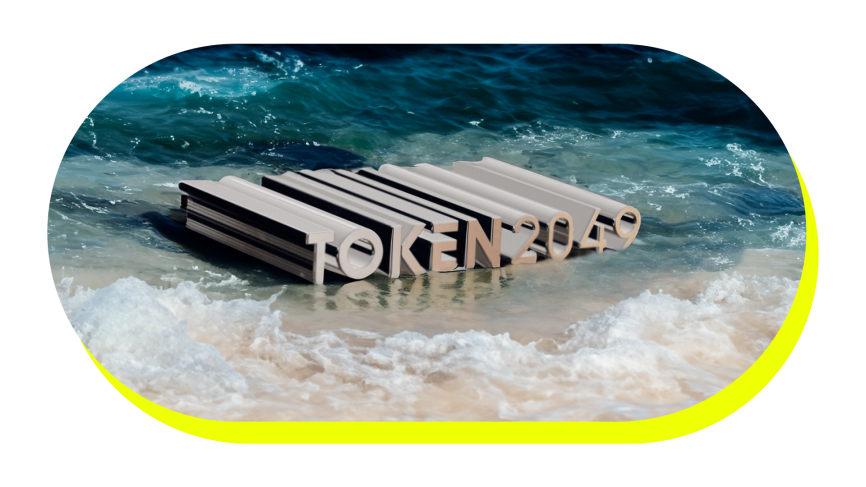
I arrived in Dubai on the 15th of April amidst an unexpected downpour. Later, I learned it was the heaviest rainfall the city had seen in 75 years. With public transport halted and tens of thousands expected at various crypto-centric events that week, I was curious about how things would unfold.
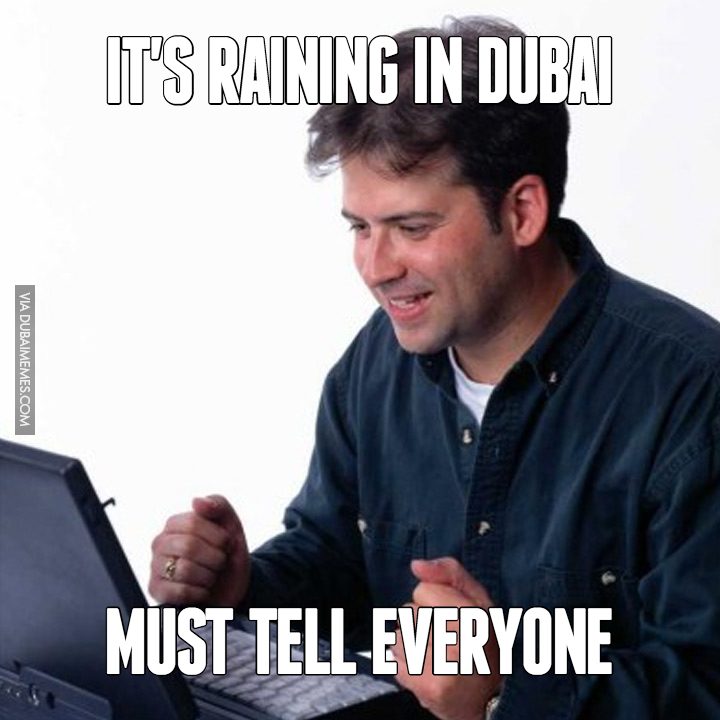
Fortunately, the desert doesn’t retain water for long, and within two days, conditions had nearly returned to normal. Aside from a few abandoned cars, increased taxi fares, and the lingering water in low-lying areas, reminiscent of scenes from Busted’s “Year 3000”, I managed to reach the Token2049 conference on time and, most crucially, dry.Here’s more about my experience.
Token2049 the Conference – Impressions
During my business trip in Dubai, I attended several conferences, but Token2049 being held outside Singapore for the first time had a distinct atmosphere. Unlike the typical glitz of Dubai events, where you might spot a Rolex or two, Token2049 had a more subdued flair, which allowed for clearer, more meaningful discussions.
The blockchain sector presents a fascinating contrast: on one side, there are founders who struck it rich by investing in Bitcoin early without much understanding of the underlying technology; on the other, there are seasoned professionals from traditional finance, ex-bankers, regulators, and lawyers, who bring a wealth of knowledge.
Fortunately, Token2049 had more of the latter, fostering richer and more insightful exchanges.
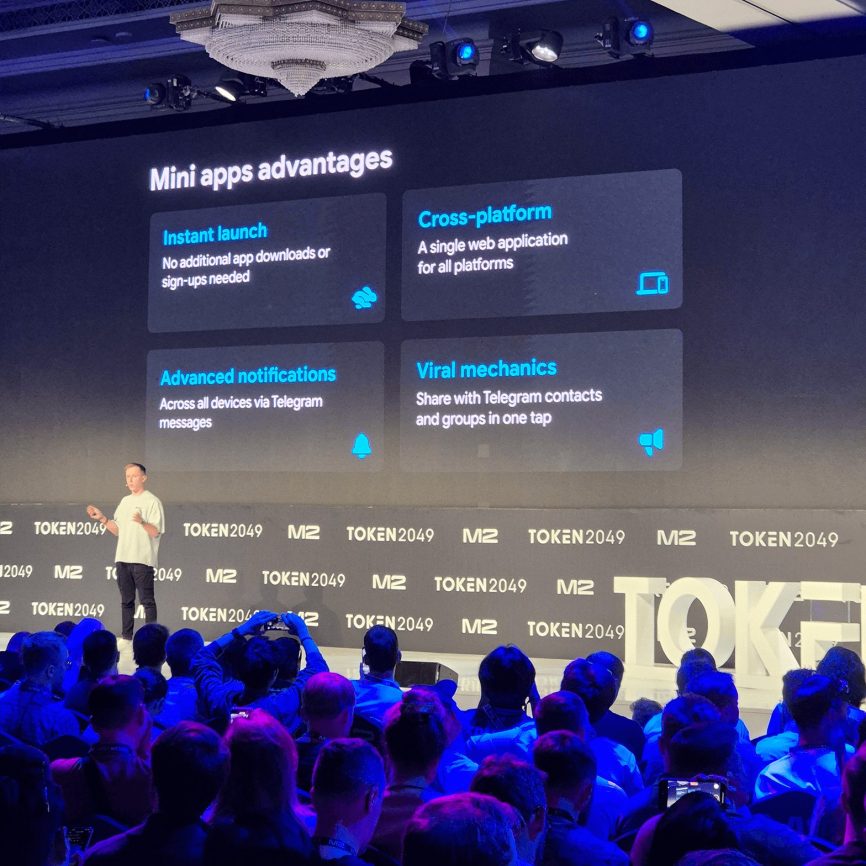
I found myself deeply engaged in discussions about the intricacies of sharding as a Layer-2 scaling solution, challenges and innovations with the CosmosSDK, the applications of zero-knowledge proofs, and even quantum crypto mining.
As with any conference in Dubai, Token2049 held its fair share of those seeking financial gain. However, the focus was less on ‘networking to sell’ and more on sharing knowledge, uniting as a community, and building collaboratively. The experience underscored the conference’s role not just as a meeting place, but as a breeding ground for ideas and partnerships in the blockchain space.
"Token2049 showed how collaboration and community are at the heart of blockchain’s future. The real strength lies in the people shaping this space."
Bradley Peak
Token2029 Attendee and Researcher at CoinsPaid
The King’s Speech
At the conference, emblematic of the crypto industry in general, everyone was actively using Telegram. Mere moments into a conversation, people were already exchanging QR codes, followed by the sending of stickers or even a selfie. This modern style of networking, so different from a decade ago, has made Telegram the preferred communication tool here.
But there’s more to Telegram than just messaging. Its blockchain component, TON, is gaining traction and earning accolades for its role in accelerating Web3 adoption.
This context set the stage for Pavel Durov’s highly anticipated speech, his first in over ten years. Scheduled on the second day, it became the focal point of the conference, drawing a packed audience eager to hear from him.
He passionately discussed Telegram’s commitment to freedom and privacy, outlining how the integration with blockchain technology was deepening. I was listening intently – after all, at CryptoProcessing, we’re soon to integrate TON and the network’s native coin as a payment method, so stay tuned!
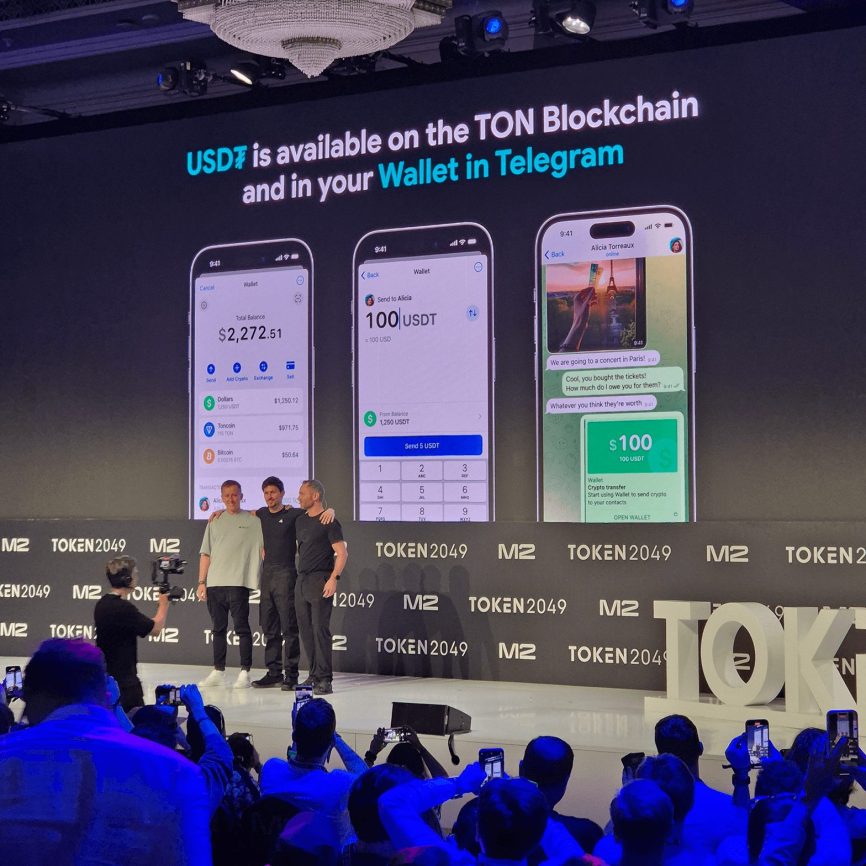
Durov announced ambitious plans to tokenize features on Telegram, such as stickers and emojis, using the TON blockchain. He also detailed that 50% of ad revenue through Telegram’s Ad Network would now be shared with the content creators and channel owners within the TON network.
What struck me most was the emphasis on user freedom. By leveraging blockchain, Telegram is offering users unprecedented control to create tools, apps, and businesses directly on their platform. This approach starkly contrasts with other social media giants that exploit user data for advertising gains without directly benefiting the users themselves.
In a significant move for the crypto world, Durov’s announcement was closely followed by Tether’s declaration that they would be launching their USDT stablecoin and Tether Gold on the TON network. This marked a considerable expansion of blockchain functionality within Telegram.
Aside from ‘The King’s Speech’, it was refreshing to hear from Fintech legends such as Stefan Kimmel, who recently launched M2, an Abu-Dhabi-based exchange that is set to rival giants such as Binance and ByBit.
Further Discussions on the Future of Blockchain
Listening to a range of speakers from a variety of backgrounds really helped me to clarify the future of crypto – at least, the vision I had in my head.
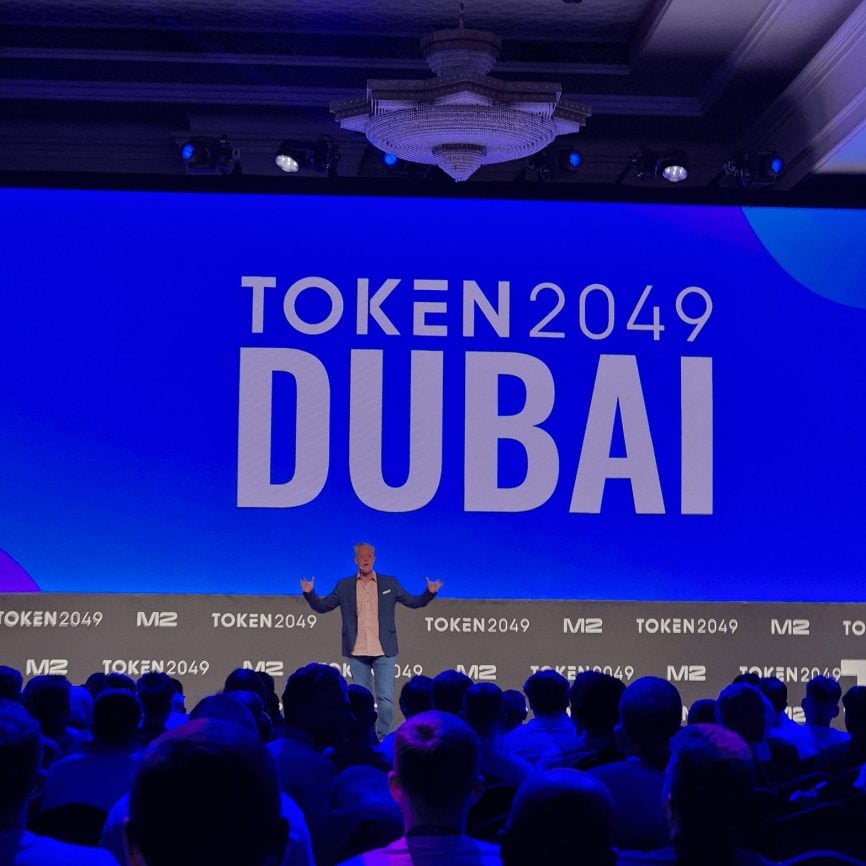
- The development of consensus has always been one of the more nebulous concepts for me. Of course, there’s never a shortage of PoS discussions at Token conferences. This year, I noticed a lot of talk regarding EIP (Ethereum Improvement Proposal) that would shift the network towards liquid staking and restaking.
- Balaji Srinivasan was a notable speaker – he introduced the concept of network states, advocating a decentralised, digital-first approach to nation-building. This was certainly an intriguing proposed alternative to traditional geopolitical structures. Even beginning the discussion in that direction demonstrates a shift towards decentralisation that could redefine societal frameworks.
- The integration of AI and the impact of macroeconomic factors on the crypto markets were also prominent topics. These discussions emphasised the need for adaptive strategies in investment and asset management to navigate the increasingly complex crypto landscape.
- Lastly, I noticed that the importance of community in the growth of crypto ecosystems was a recurring theme. Platforms like Telegram are at the forefront here, pushing the boundaries of user engagement and monetization, and pioneering new ways to reward users through cryptocurrency functionalities.
Final thoughts
As I left the conference, I reflected on the rich discussions, the spirit of innovation, and the community’s collective drive to push the boundaries of what is possible in the digital age. The ability to interact with like-minded individuals at Token2049 reinforced the notion that the heart of blockchain is not just in its technology but in the people who innovate, build, and expand it.
As blockchain technology continues to evolve and integrate with various sectors, the lessons learned and the connections made in Dubai last week will undoubtedly play a critical role in shaping the future of this dynamic industry. I’m excited to see what’s next.


